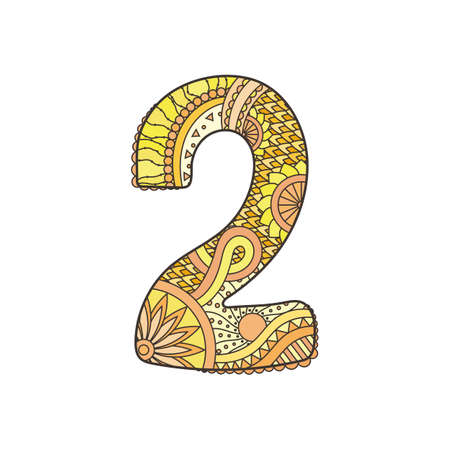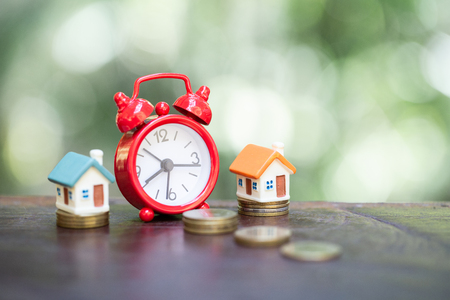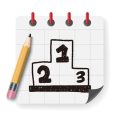Introduction to Personal Energy Maps
Have you ever walked into a home and instantly felt at ease, or maybe just the opposite—unsettled and uncomfortable? This sensation isnt just about furniture or paint color. Its deeply connected to how energy flows in a space. In Feng Shui, this idea is mapped out using the Bagua, an ancient tool for understanding personal energy maps. For American homes, learning about these energy patterns can help create environments that support well-being and harmony for everyone who lives there.
What is a Personal Energy Map?
A personal energy map is a visual guide that shows how different areas of your home influence specific aspects of your life. The Bagua—a core concept in Feng Shui—is often used as this map. By placing the Bagua over your homes floor plan, you can see which parts of your house connect to areas like health, relationships, career, or creativity. Understanding this connection helps you make mindful changes that improve your daily life.
Why Energy Maps Matter in American Homes
American homes come in all shapes and sizes—from cozy apartments to sprawling suburban houses. No matter the style, the layout and arrangement of rooms affect how people feel and interact within the space. Using a personal energy map gives homeowners simple ways to boost comfort, happiness, and productivity without major renovations.
Bagua Areas and Their Life Connections
| Bagua Area | Life Aspect | Common U.S. Room Example |
|---|---|---|
| Wealth & Prosperity | Finances & Abundance | Home Office or Dining Room |
| Fame & Reputation | Recognition & Self-Esteem | Living Room or Family Room |
| Love & Relationships | Romance & Partnerships | Main Bedroom |
| Family & Health | Physical Well-being & Family Bonds | Kitchen or Dining Area |
| Center (Tai Chi) | Overall Balance & Wellness | Main Hallway or Central Living Space |
| Creativity & Children | Inspiration & Family Growth | Kid’s Room or Craft Area |
| Knowledge & Wisdom | Learning & Self-Improvement | Library or Study Nook |
| Career & Life Path | Work Success & Life Goals | Main Entryway or Home Office |
| Helpful People & Travel | Support Network & Journeys | Mudroom or Guest Room |
This table links each Bagua area with a part of American life and common spaces found in U.S. homes. By exploring your own personal energy map, you can start making small changes to encourage positive energy flow and greater harmony for everyone under your roof.
2. Bagua Basics: Origins and Core Principles
What Is the Bagua?
The Bagua (pronounced “bah-gwah”) is a core concept in Feng Shui, a traditional Chinese system for arranging spaces to support well-being and harmony. The word “Bagua” means “eight areas,” and it’s essentially a map that divides any space—like your home—into nine sections, each representing a different aspect of life, such as wealth, love, career, or health.
Origins in Chinese Tradition
The Bagua comes from ancient Chinese philosophy and is deeply connected to Taoism and the I Ching, or “Book of Changes.” Historically, the Bagua was used to understand natural patterns and energy flow (known as “Qi”). Over centuries, people began applying these ideas to their homes and workplaces to encourage positive energy and improve quality of life.
Bagua Map Structure
The standard Bagua map is shaped like a grid with three rows and three columns, creating nine squares. Each square represents one life area. Here’s a quick breakdown:
| Bagua Area | Life Aspect | Common Color | Element |
|---|---|---|---|
| Wealth & Prosperity | Money & Abundance | Purple | Wood |
| Fame & Reputation | Recognition | Red | Fire |
| Love & Relationships | Romance & Marriage | Pink/Red | Earth |
| Family & Health | Family Ties & Well-being | Green | Wood |
| Center (Tai Chi) | Total Balance & Health | Yellow/Earth tones | Earth |
| Children & Creativity | KIDS & Creative Work | White/Pastel colors | Metal |
| Knowledge & Wisdom | Personal Growth & Study | Navy Blue/Black/Green | Earth |
| Career & Life Path | Work/Career Success | Black/Dark Blue | Water |
| Helpful People & Travel | Mentors, Friends, Travel | Gray/Silver | Metal |
The Bagua in American Homes: A Modern Fit
The beauty of the Bagua is its flexibility. You don’t have to live in a traditional Chinese house to use it! Many Americans are finding that the core ideas behind the Bagua—balance, harmony, and mindful space design—fit perfectly with contemporary lifestyles.
Main Ways Bagua Aligns With American Culture:
- Simplicity: The grid system makes it easy to map out any home, apartment, or even an office cubicle.
- Diversity: The focus on all areas of life resonates with American values like self-improvement and personal growth.
- Aesthetic Flexibility: You can apply color suggestions or element themes in subtle ways that suit modern decor styles.
Bagua Application Example for U.S. Homes
If you place the Bagua map over your home’s floor plan, aligning the bottom row with your front door, each section will correspond to a part of your real living space. For example, if your entryway falls in the “Career” zone, you might add some artwork featuring water (like oceans or rivers) or choose deep blue accents there.
This blend of tradition and personal creativity is why more Americans are exploring the Bagua as a practical tool for shaping happier and healthier homes.

3. Translating Bagua to American Home Design
Overlaying the Bagua Map on Modern American Floor Plans
The Bagua map is a traditional feng shui tool used to analyze the energy of a space and identify areas connected to different life aspects, such as health, relationships, and career. When adapting the Bagua to American homes, it’s important to consider open floor plans, multi-use rooms, and unique architectural features that differ from traditional Chinese layouts.
How to Apply the Bagua Map in Your Home
Start by sketching your homes main floor plan. The Bagua map is typically a square or rectangle divided into nine equal sections, each representing a specific life area. Align the bottom edge of the Bagua map with your homes main entrance wall. If your house is irregularly shaped, use the outermost walls to create a rectangle or square for overlaying the map.
Bagua Areas and Corresponding Rooms
| Bagua Area | Life Aspect | Common Room/Space in American Homes |
|---|---|---|
| Career (North) | Work & Life Path | Entryway, Hallway |
| Knowledge (Northeast) | Self-Cultivation & Wisdom | Home Office, Study Nook |
| Family (East) | Family & Health | Living Room, Family Room |
| Wealth (Southeast) | Abundance & Prosperity | Dining Room, Kitchen Corner |
| Fame (South) | Reputation & Recognition | Fireplace Area, Main Wall for Photos/Awards |
| Love (Southwest) | Relationships & Marriage | Main Bedroom, Master Suite Corner |
| Creativity (West) | Children & Projects | Kid’s Room, Craft Area, Playroom |
| Helpful People (Northwest) | Support & Travel | Guest Room, Garage Entry Area |
| Center | Health & Balance | Main Hallway Junction or Open Living Space Center |
Tackling Common Layout Challenges in American Homes
- L-Shaped or Irregular Homes: Extend the outer lines of your home to form a square or rectangle before placing the Bagua. Treat missing corners as “weak” energy spots—enhance them with plants, mirrors, or art.
- Open Concept Spaces: Use rugs or furniture groupings to visually define areas corresponding to Bagua sectors.
- Apartments and Condos: Focus on your personal unit’s entrance and layout rather than the entire building.
Tuning Feng Shui with Modern Lifestyles
The flexible nature of most American homes means you don’t need to remodel; small changes make a big difference. For example:
- Add family photos in the “Family” area to strengthen bonds.
- Create a mini meditation zone in the “Knowledge” corner for personal growth.
- Add a red accent in the “Fame” sector—like a lamp or artwork—to boost recognition.
The key is blending tradition with practicality: Use what you already have and adapt recommendations so they feel authentic and comfortable for your lifestyle.
4. Key Bagua Areas: What They Represent
Understanding the Bagua Map Zones
The Bagua map is like a personal energy blueprint for your home. Each area or “zone” in the Bagua represents a part of your life, such as wealth, health, relationships, and career. By understanding what these zones mean both in traditional Feng Shui and in everyday American life, you can make your living space more supportive and balanced.
Main Bagua Zones and Their Meanings
| Bagua Area | Traditional Symbolism | Everyday American Context |
|---|---|---|
| Wealth & Prosperity (Xun) | Abundance, financial success, self-worth | Your bank account, job promotions, feeling secure about money |
| Fame & Reputation (Li) | How others see you, recognition, confidence | Your reputation at work, social media presence, being appreciated by friends or colleagues |
| Love & Relationships (Kun) | Romance, partnerships, self-care | Your marriage or dating life, close friendships, quality time with loved ones |
| Family & New Beginnings (Zhen) | Family harmony, growth, fresh starts | Family gatherings, starting new projects, making positive changes at home |
| Health & Center (Tai Qi) | Overall wellbeing, balance in life | Your physical and mental health, feeling stable and centered day to day |
| Children & Creativity (Dui) | Creativity, future plans, kids | Your children’s happiness and success, artistic hobbies, planning for the future |
| Knowledge & Self-Cultivation (Gen) | Learning, wisdom, self-improvement | Your education goals, reading habits, taking time for personal growth or meditation |
| Career & Life Path (Kan) | Your journey in life, career path, purpose | Your job satisfaction, finding your passion at work or school, making career moves |
| Helpful People & Travel (Qian) | Mentors, networking, journeys near and far | Your support system—friends who help when needed—and opportunities to travel or explore new places |
How These Zones Show Up in Your Home Life
You can use the Bagua map to focus on specific parts of your home that relate to areas you want to improve. For example:
- If you want a promotion at work or more financial security, enhance the Wealth area by keeping it tidy and adding something green (like a plant).
- If you’re hoping for closer family bonds or new beginnings after a big change, pay attention to the Family zone with family photos or healthy plants.
- If youre focused on health and balance, keep the center of your home clean and clutter-free.
A Simple Way to Get Started:
Stand at your front door looking inside. Imagine a grid divided into nine squares covering your whole house. Each square matches one of the key Bagua zones above. By understanding these zones and what they represent for you personally—and in American culture—you can begin making small changes that add up to a happier home.
5. Practical Adjustments: Simple Changes for Positive Energy
If you’re curious about how to bring Bagua energy mapping into your American home, you’ll be happy to know that small changes can make a big difference. Here are practical steps designed to fit everyday American lifestyles—no need for a total makeover!
Declutter and Organize
In Bagua, clutter blocks positive energy (qi). In American homes, busy schedules and family life often mean things pile up quickly. Take time to clear out old mail, unused gadgets, and shoes by the front door. Donate or store what you don’t use so every area feels open and welcoming.
Bagua Area: Quick Fixes Table
| Bagua Area | Common U.S. Room | Simple Adjustment |
|---|---|---|
| Wealth & Prosperity | Home Office/Desk | Add a healthy green plant or a family photo in a nice frame |
| Health & Family | Living Room | Keep seating arranged for easy conversation; display fresh flowers or a bowl of fruit |
| Career & Path in Life | Entryway/Hallway | Hang artwork with flowing water imagery or use a dark-colored rug to ground the space |
| Love & Relationships | Bedroom | Use pairs (lamps, pillows); keep the bed accessible from both sides |
| Knowledge & Wisdom | Study/Reading Nook | Add books, journals, or a cozy chair to encourage learning and reflection |
| Fame & Reputation | Mantel/Wall Space | Display awards, diplomas, or something red as a symbol of recognition |
| Helpful People & Travel | Mudroom/Garage Entry | Add a metal tray for keys or hang travel photos/maps to inspire connection and adventure |
| Creativity & Children | Kitchens/Craft Corners/Kids’ Rooms | Showcase children’s art or crafts; keep markers and supplies tidy but visible for inspiration |
| Center (Overall Health) | Main Living Space/Hallway Junctions | Keep this area clear; use earth-tone rugs or stones to promote stability and balance throughout the home |
Add Natural Elements Thoughtfully
You don’t need exotic décor—just work with what feels right in an American context. Consider these:
- Wood: Place a sturdy bookshelf or add houseplants.
- Water: Use a small tabletop fountain, fish tank, or even artwork with lakes/rivers.
- Fire: Light candles safely or use warm-toned lamps in living spaces.
- Earth: Incorporate pottery, stone coasters, or ceramic bowls.
- Metal: Display metallic picture frames or hang wind chimes by the door.
Create Flow With Furniture Placement
Avoid blocking pathways with oversized sofas or coffee tables. Arrange furniture so it’s easy to move around—this helps qi circulate and makes rooms feel inviting. In the bedroom, position your bed where you can see the door easily but aren’t directly in line with it—a classic tip that works well in both feng shui and Western design.
Sensible Lighting Upgrades
If your space feels dull, swap out bulbs for warmer tones or add table lamps in dark corners. Letting in natural sunlight whenever possible boosts both mood and energy flow.
Your Bagua Map—Your Home’s Story
The magic is in the details that suit your lifestyle. Using these simple adjustments inspired by Bagua basics will help your home feel more balanced and full of positive energy—without feeling unfamiliar or overwhelming. Try one change at a time and notice how it shifts the vibe in your space!
6. Respecting Diversity: Blending Feng Shui with American Values
American homes are as diverse as the people living in them. When applying Bagua principles, it’s important to respect cultural diversity and individual preferences. Here are some practical ways to make Bagua feel authentic and inclusive for everyone:
Honor Your Backgrounds and Beliefs
Not everyone shares the same traditions or religious views. Instead of insisting on strict Feng Shui rules, start by having open conversations with household members about what feels comfortable. Mix in family traditions, favorite colors, and meaningful objects. This helps the energy map reflect everyone’s unique story.
Customize Bagua for Modern Lifestyles
The classic Bagua map was designed for traditional Chinese homes, but American houses come in all shapes and sizes—apartments, ranches, tiny homes, and more. Don’t worry if your floor plan isn’t a perfect rectangle. Adapt each area to fit your actual space and lifestyle needs.
| Bagua Area | Traditional Element | American Home Adaptation |
|---|---|---|
| Wealth & Prosperity | Wood | Add a family photo collage or an inspiring quote wall |
| Fame & Reputation | Fire | Display sports trophies or graduation diplomas |
| Love & Relationships | Earth | Create a cozy reading nook or add art that celebrates relationships |
| Health & Family | Wood | Include healthy snacks in the kitchen or a family activity board |
| Center (Balance) | Earth | Add a statement rug or central gathering spot for guests |
| Children & Creativity | Metal | Create a craft corner or display kids’ artwork proudly |
| Knowledge & Wisdom | Earth | Add bookshelves or a study desk for learning and reflection |
| Career & Life Path | Water | Create an organized home office or vision board area |
| Helpful People & Travel | Metal | Add souvenirs from trips or thank-you notes from friends |
Create Inclusive Spaces for Everyone at Home
If you live with roommates, family members, or partners from different backgrounds, invite everyone to contribute ideas. Ask questions like: What makes you feel comfortable? Are there any symbols you’d like to include? This approach honors each person’s voice.
Merging Feng Shui with American Traditions:
- Add holiday decorations that celebrate your heritage alongside Bagua enhancements.
- If you follow other spiritual practices, incorporate those symbols with your Feng Shui cures.
- Select colors and art that represent your values—whether patriotic, personal milestones, or meaningful causes.
- Avoid superstitions that don’t resonate with your beliefs; focus on creating positive feelings in your home.
An Authentic Approach for Every Household
The best way to use Bagua is to blend its wisdom with what matters most to you and your loved ones. By honoring diversity and making room for personal touches, you create an energy map that truly supports happiness and harmony in any American home.


